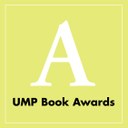San Antonio Current: A Q&A with Trinity professor Amy Stone
Immediately following President Obama's recent endorsement for marriage equality, a political divide began to form within the gay community. While one half celebrated the president's efforts to foster progress, the other half questioned whether or not anything had really changed. After all, anti-gay ballot initiatives continue to penetrate election offices across the country and gay men and women are still considered, in many ways, separate but equal.
Amy Stone, author of Gay Rights at the Ballot Box and professor of sociology at Trinity University, spoke with the Current recently about the history of anti-gay ballot measures and the activists challenging them.
You focus on the efforts of those campaign workers and activists who fight anti-gay ballot measures. What tactics were most effective?
Organizing early, using people power, talking to voters, and having a consistent "out" message. The most successful campaigns get started months before the actual vote (sometimes a year or two). They realize that a campaign will take thousands of volunteers; it has to recruit people from all walks of life. These campaigns systematically and persistently talk to voters face-to-face frankly and honestly about the issues. They also are "out" in their messages to the public about the way this issue is important to LGBT individuals.
By: Christine Garza
Story Date: 2012-06-27T00:00:00



